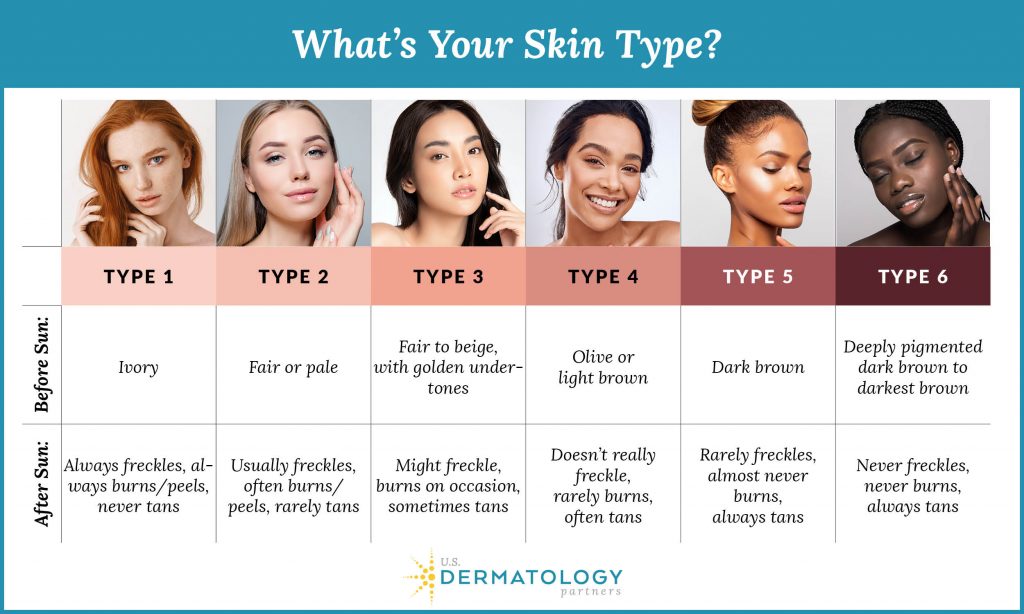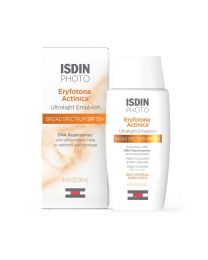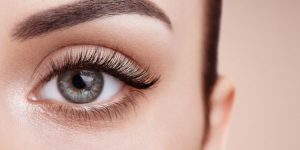Free Shipping Over $100
Free Samples With Every Purchase
Auto Replenishment Available
Authorized Reseller
Fitzpatrick Skin Guide: Find Your Perfect Sunscreen!
There are very few elements of a skincare routine that are right for everyone, but sunscreen is the one product that everyone, no matter their skin type, should be using. While everyone needs to apply sunscreen daily, the type of sunscreen will vary based on their individual skin type and skin health needs. One of the most important factors to consider when choosing sunscreen is your Fitzpatrick skin type. This is a guide used by dermatologists to determine how likely people are to experience specific skin health concerns, including sun damage. Knowing your Fitzpatrick skin type can help you choose the right sunscreen to keep your skin safe and healthy during sun exposure. In this blog, we’ll answer the question, “What is the best sunscreen for my Fitzpatrick skin type,” and discuss how you determine your Fitzpatrick skin type and how the results affect your sunscreen choices.
Understanding the Fitzpatrick Scale
Dr. Thomas B. Fitzpatrick developed the scale, now referred to as the Fitzpatrick skin phototype scale, or simply the Fitzpatrick scale or Fitzpatrick skin type. This skin classification system is based on the amount of melanin, pigment-producing cells, in an individual’s skin. Melanin determines the skin’s natural tone, and it plays a significant role in how skin reacts to sun exposure, including short-term effects like burning and tanning, as well as long-term effects like accelerated skin aging and skin cancer. By identifying your Fitzpatrick skin type, you are better able to choose all skincare products, but it’s especially important when selecting sunscreen since your Fitzpatrick skin type is directly related to the way skin responds to sun exposure. Below, we provide a basic description of each Fitzpatrick skin type, but you can determine yours by taking our quiz.

- Fitzpatrick Skin Type 1 – People with this skin type have pale skin and light eyes. Skin doesn’t tan and burns easily. You are at high risk for skin cancer. Those with this skin type should limit sun exposure as much as possible. When people with Fitzpatrick Skin Type 1 do spend time outdoors, they need to use a broad-spectrum sunscreen with an SPF of 30 or higher.
- Fitzpatrick Skin Type 2 – Those with this skin type have a fair or peachy skin tone with blue, green, or hazel eyes. This skin type may rarely tan, but it is much more likely to burn after sun exposure. Time in the sun should be limited and a broad-spectrum sunscreen of SPF 30 or higher is recommended daily.
- Fitzpatrick Skin Type 3 – People with this skin type have light brown or olive skin tones with dark blue, hazel, or brown eye color. Skin may burn, but it will tan gradually. People with this skin type are still at moderate risk for skin cancer. They should limit sun exposure during peak hours between 10 am and 4 pm and apply a broad-spectrum sunscreen with an SPF of 30 or higher.
- Fitzpatrick Skin Type 4 – Those with this skin type have brown to dark brown skin tones and brown eyes. Skin may rarely burn, but it tans easily. People with this skin type are at lower risk for skin cancer, but they should still protect their skin from sun damage by applying a broad-spectrum sunscreen with an SPF of 30 or higher and limiting sun exposure between 10 am and 4 pm when the sun’s rays are strongest.
- Fitzpatrick Skin Type 5 – People with this skin type have dark brown or black skin and dark brown eyes. This skin type tans easily and is unlikely to experience a sunburn. Fitzpatrick Skin Type 5 has a low risk for most forms of skin cancer but may be at increased risk for acral lentiginous melanoma, which is an aggressive form of skin cancer more common in those with darker skin tones. Apply sunscreen daily to reduce the risk of developing this and other forms of skin cancer.
- Fitzpatrick Skin Type 6 – This skin type has extremely dark brown and black skin with dark brown or black eyes. People with this skin type do not experience sunburn. However, they are still at risk for skin cancer. For this reason, it’s important to apply sunscreen daily.
Choosing the Right Sunscreen for Your Skin Tone
If you’re searching for the right sunscreen for your skin type, it may be time to consult with a dermatologist who can give you a personalized recommendation. Below, we’ve described a few of our most recommended sunscreens and how they benefit different Fitzpatrick skin types:
- Fitzpatrick Skin Type 1 – skinbetter Science Sunbetter TONE SMART SPF 68 Sunscreen Compact is an innovative sun protection solution. You apply it like a powder foundation. It blocks out damage from the sun and delivers a smoother, more even skin tone.
- Fitzpatrick Skin Type 2 – Revision Skincare Intellishade TruPhysical offers advanced sun protection with an all-mineral formula that is gentle on the skin. It protects against the sun’s UV rays, soothes, and corrects damaged skin.
- Fitzpatrick Skin Type 3: Use ISDIN Eryfotona Actinica SPF 50+. This mineral sunscreen absorbs quickly and won’t leave skin looking chalky. It protects against new sun damage and repairs existing sun damage.
- Fitzpatrick Skin Type 4 – Invest in the ALASTIN Skincare HydraTint Pro Mineral Broad-Spectrum Sunscreen SPF 36. This unique sunscreen shields against UVA and UVB rays, infrared rays, and pollutant damage. It also improves overall skin tone.
- Fitzpatrick Skin Type 5: Try the SkinCeuticals Daily Brightening UV Defense Sunscreen SPF 30. This product will keep skin safe from sun exposure, but it also actively reduces existing skin discoloration and promotes skin hydration.
- Fitzpatrick Skin Type 6: Consider the Colorscience Sunforgettable Total Protection Brush-On SPF 50 in the shade deep. This is an easy-to-apply powdered sunscreen that can be layered over cosmetics and reapplied all day long without worrying about makeup smudging.
Tips for Effective Sunscreen Application
Depending on your unique skin health needs, you can work with a dermatologist to find the best sunscreen and develop the ideal sunblock application routine. A dermatologist can help you understand how sunscreens can be incorporated into your daily skincare regimen. In general, you should keep the following sunscreen application tips in mind:
- Choose the right sunscreen – Most people should select a good sunscreen with a sun protection factor (SPF) of 30 or higher. Look for a product that offers broad-spectrum protection against both UVA and UVB rays. Refer to a dermatologist for personalized recommendations.
- Apply sunscreen at the right time – Sunscreen needs to be applied 10 to 15 minutes before you go outside. This allows the sunscreen to be fully absorbed to protect the skin.
- Apply to the right area – Apply sunscreen to any area of skin that is exposed to sunlight. Most people will need to apply to the face, neck, and hands daily. Other areas only need to be protected with sunscreen when they are not covered with clothing.
- Apply the right amount – Most people will need to apply about one ounce of sunscreen to achieve full coverage.
- Apply carefully – Make sure to gently rub sunscreen into the skin until it is fully absorbed.
- Reapply regularly – On average, sunscreen needs to be reapplied at least every two hours.
Learn More About Skin Health
If you’re interested in learning more about skincare products designed for your Fitzpatrick skin type or unique skincare needs, be sure to take our skin type quiz. Then, we hope you’ll explore all of the dermatologist-recommended solutions available on Derm Skincare. You can also read our blog regularly to learn more about the top selections from our dermatologists to address a variety of skin health needs.
-
-
Colorescience Sunforgettable Total Protection Brush-On Shield SPF 50 - Deep (0.21 oz)Regular Price $69.00 Now Only $55.20













